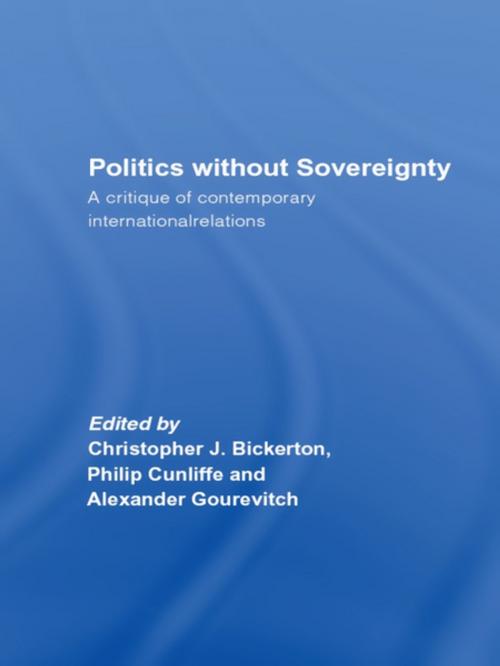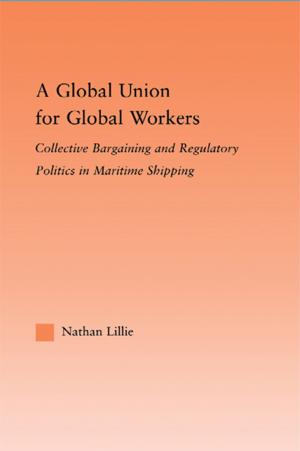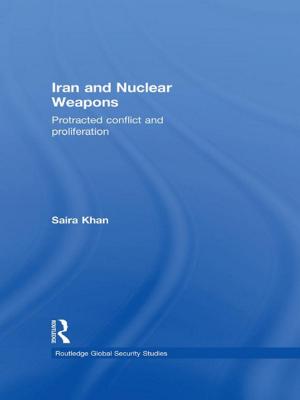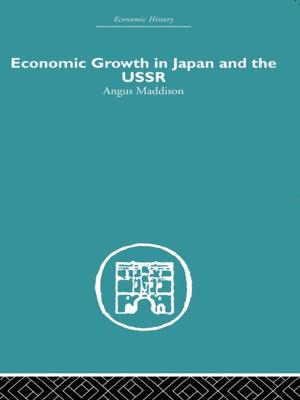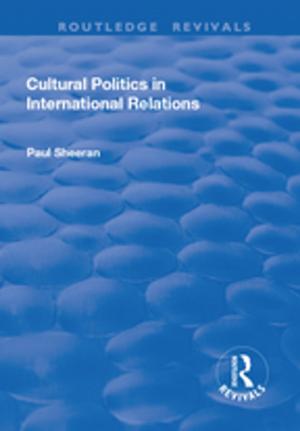Politics Without Sovereignty
A Critique of Contemporary International Relations
Nonfiction, Social & Cultural Studies, Political Science, International, International Relations| Author: | ISBN: | 9781134113859 | |
| Publisher: | Taylor and Francis | Publication: | December 1, 2006 |
| Imprint: | Routledge | Language: | English |
| Author: | |
| ISBN: | 9781134113859 |
| Publisher: | Taylor and Francis |
| Publication: | December 1, 2006 |
| Imprint: | Routledge |
| Language: | English |
Written by leading scholars, this volume challenges the recent trend in international relations scholarship – the common antipathy to sovereignty.
The classical doctrine of sovereignty is widely seen as totalitarian, producing external aggression and internal repression. Political leaders and opinion-makers throughout the world claim that the sovereign state is a barrier to efficient global governance and the protection of human rights.
Two central claims are advanced in this book. First, that the sovereign state is being undermined not by the pressures of globalization but by a diminished sense of political possibility. Second, it demonstrates that those who deny the relevance of sovereignty have failed to offer superior alternatives to the sovereign state. Sovereignty remains the best institution to establish clear lines of political authority and accountability, preserving the idea that people shape collectively their own destiny. The authors claim that this positive idea of sovereignty as self-determination remains integral to politics both at the domestic and international levels.
Politics Without Sovereignty will be of great interest to students and scholars of political science, international relations, security studies, international law, development and European studies.
Written by leading scholars, this volume challenges the recent trend in international relations scholarship – the common antipathy to sovereignty.
The classical doctrine of sovereignty is widely seen as totalitarian, producing external aggression and internal repression. Political leaders and opinion-makers throughout the world claim that the sovereign state is a barrier to efficient global governance and the protection of human rights.
Two central claims are advanced in this book. First, that the sovereign state is being undermined not by the pressures of globalization but by a diminished sense of political possibility. Second, it demonstrates that those who deny the relevance of sovereignty have failed to offer superior alternatives to the sovereign state. Sovereignty remains the best institution to establish clear lines of political authority and accountability, preserving the idea that people shape collectively their own destiny. The authors claim that this positive idea of sovereignty as self-determination remains integral to politics both at the domestic and international levels.
Politics Without Sovereignty will be of great interest to students and scholars of political science, international relations, security studies, international law, development and European studies.
